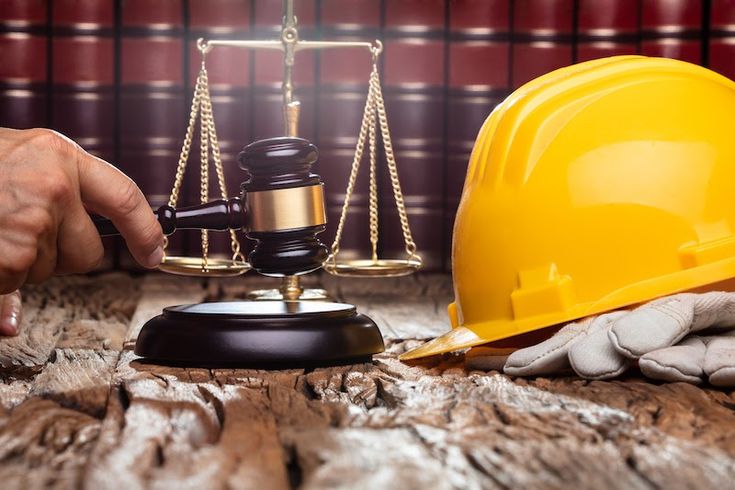Understanding Workers Comp Lawyers and Their Role

Introduction
In the ever-evolving landscape of employment and workplace dynamics, the significance of workers comp lawyers cannot be overstated. These legal professionals play a pivotal role in safeguarding the rights and interests of employees who have suffered injuries or illnesses due to work-related circumstances. As we navigate through 2024, the importance of workers comp lawyers continues to grow, ensuring that individuals receive fair compensation and access to the necessary resources for their recovery.
What is Workers’ Compensation?
Before delving into the role of workers comp lawyers, it is essential to understand the concept of workers’ compensation. Workers’ compensation is a form of insurance that provides financial assistance and medical benefits to employees who sustain injuries or develop illnesses as a result of their employment. This system is designed to protect both employees and employers, facilitating a streamlined process for addressing workplace-related incidents.
The Crucial Role of Workers Comp Lawyers
When an employee is faced with a work-related injury or illness, navigating the complexities of the workers’ compensation system can be overwhelming. This is where workers comp lawyers step in, acting as advocates and guiding their clients through the intricate legal process. Their primary responsibilities include:
- Evaluating Claims: Workers comp lawyers meticulously review the details of each case, assessing the validity and strength of the claim. They gather relevant medical records, employment documents, and witness statements to build a strong case.
- Negotiating Settlements: In some instances, employers or insurance companies may dispute or undervalue a claim. Workers comp lawyers possess the negotiation skills necessary to advocate for their clients and secure fair settlements.
- Representing Clients at Hearings: If a settlement cannot be reached, workers comp lawyers represent their clients at administrative hearings or court proceedings. They present evidence, cross-examine witnesses, and argue on behalf of their clients’ rights.
- Ensuring Compliance: Workers comp lawyers ensure that employers and insurance companies comply with applicable laws and regulations. They monitor the provision of medical treatment, wage replacement benefits, and other entitlements.
- Appealing Decisions: In cases where initial decisions are unfavorable, workers comp lawyers can file appeals and continue fighting for their clients’ rights.
Also Read:
https://besraha-news.online/juvenile-crimes-lawyer/
Common Work-Related Injuries and Illnesses
Workers comp lawyers handle a wide range of work-related injuries and illnesses, including but not limited to:
- Repetitive Strain Injuries: Conditions such as carpal tunnel syndrome, tendonitis, and back injuries resulting from repetitive motions or improper ergonomics.
- Slip and Fall Accidents: Injuries sustained from slips, trips, and falls in the workplace, often leading to fractures, sprains, or head injuries.
- Occupational Diseases: Illnesses developed due to exposure to hazardous substances, such as asbestos, chemicals, or toxic fumes.
- Workplace Violence: Physical or psychological injuries resulting from workplace violence, including assaults, harassment, or other forms of abuse.
- Construction Site Accidents: Injuries sustained on construction sites, including falls from heights, struck-by incidents, and equipment-related accidents.
Choosing the Right Workers Comp Lawyer
With the multitude of workers comp lawyers available, selecting the right professional can be a daunting task. Here are some factors to consider when making your choice:
- Experience: Look for a workers comp lawyer with extensive experience handling cases similar to yours. Their familiarity with the legal system and industry-specific nuances can significantly impact the outcome of your case.
- Reputation: Research the lawyer’s reputation by reading client reviews, checking their professional standing with local bar associations, and inquiring about their track record of successful settlements or verdicts.
- Communication Skills: Effective communication is crucial throughout the legal process. Choose a workers comp lawyer who listens attentively, explains complex legal concepts in a clear and concise manner, and keeps you informed at every stage.
- Resources and Support: Consider the resources and support staff available to the workers comp lawyer. A well-equipped legal team can conduct thorough investigations, gather evidence, and provide comprehensive representation.
- Fees and Payment Structure: Understand the lawyer’s fee structure and payment options. Many workers comp lawyers work on a contingency basis, meaning they receive a percentage of the settlement or award if the case is successful.
Conclusion
As the workforce continues to evolve, the role of workers comp lawyers becomes increasingly crucial in protecting the rights and well-being of employees. By navigating the intricate legal system, advocating for fair compensation, and ensuring compliance with regulations, these legal professionals serve as invaluable allies for individuals who have suffered work-related injuries or illnesses. In 2024 and beyond, seeking the guidance of a skilled and reputable workers comp lawyer can make a significant difference in securing the benefits and support you deserve.
References:
- Source 1: Overview of Workers’ Compensation Laws and Regulations – U.S. Department of Labor
- Source 2: Choosing the Right Workers’ Compensation Attorney – Nolo
- Source 3: The Role of a Workers’ Compensation Lawyer – FindLaw
- Source 4: Common Workplace Injuries and Illnesses – Occupational Safety and Health Administration (OSHA)







